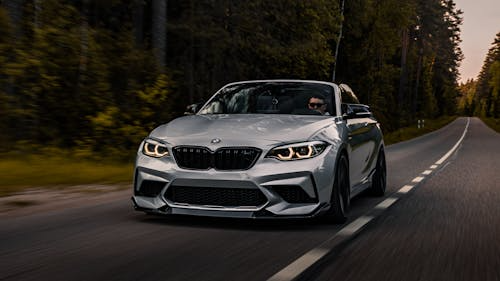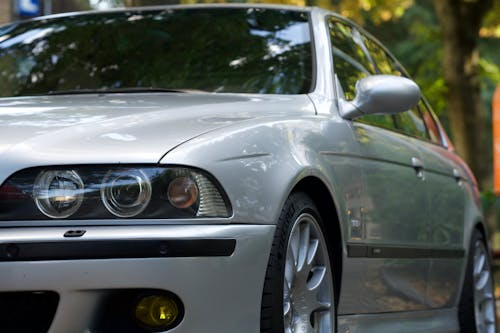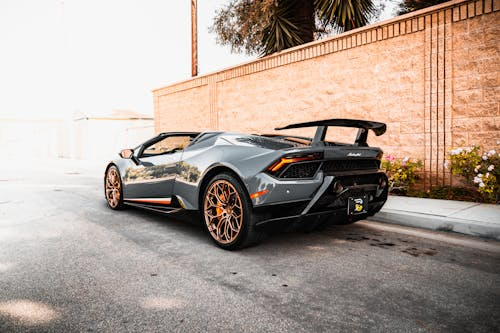The Positional Differences Between Front Fog Lights and Rear Fog Lights: Do You Really Understand Them?|Bliauto 2025 Automotive Lighting Guide
Bliauto explains positional differences between front fog lights and rear fog lights in the 2025 Automotive Lighting Guide. Insights for Brand Manufacturers of Fog Lights, Manufacturing Front Fog Lights, and Wholesale Rear Fog Lights to help you choose compliant, safety-focused lighting.
- I. Introduction: The Underestimated Importance of Fog Lights
- II. What Are Front Fog Lights?
- 1. Definition and Function
- 2. Position Features
- 3. Usage Scenarios
- III. What Are Rear Fog Lights?
- 1. Definition and Function
- 2. Position Features
- 3. Usage Scenarios
- IV. Key Differences Between Front and Rear Fog Lights
- V. Fog Light Design Across Different Vehicle Types
- 1. Sedans
- 2. SUVs
- 3. Trucks
- 4. Motorcycles
- VI. International Fog Light Regulations
- 1. China
- 2. United States (FMVSS Standards)
- 3. Europe (ECE Regulations)
- 4. Japan
- VII. Frequently Asked Questions (FAQ)
- VIII. BLIAUTO’s Professional Recommendations
- IX. Conclusion
I. Introduction: The Underestimated Importance of Fog Lights
In the automotive lighting system, most drivers are most familiar with low beams and high beams, which play the main role during nighttime driving. However, when facing adverse weather such as rain, snow, or heavy fog, fog lights can be more crucial than headlights. The design purpose of fog lights is not to illuminate farther but to help drivers see the road edges and vehicle outlines under extremely low visibility while also warning vehicles behind to avoid collisions.
Many drivers know their cars are equipped with “fog lights,” but few can clearly distinguish between front fog lights and rear fog lights or understand their differences in installation position, color, function, and legal requirements. In this article, BLIAUTO will comprehensively analyze the differences between front and rear fog lights and, combined with international regulations and real-world driving concerns, provide you with the most professional 2025 automotive lighting guide.
II. What Are Front Fog Lights?
1. Definition and Function
Front fog lights are installed in the lower section of the front bumper, usually below the low beams. Their purpose is not to provide long-range illumination but to project a wide, low beam directed toward the ground, reducing glare caused by reflection from fog, rain, or snow.
2. Position Features
Mounting height: Typically 25–40 cm above ground, near the vehicle’s bottom.
Beam angle: Directed downward with a wide spread.
Color: Mostly yellow or white. Yellow light has a longer wavelength, offering better penetration in foggy conditions.
3. Usage Scenarios
Driving in fog, heavy rain, or snowstorms
Mountain or coastal areas with high humidity
Rural or unlit roads at night

III. What Are Rear Fog Lights?
1. Definition and Function
Rear fog lights are often overlooked, but they are equally important for driving safety. Their function is to warn vehicles behind of your presence under low-visibility conditions, thereby reducing the risk of rear-end collisions.
2. Position Features
Mounting location: Usually below the taillights or integrated into the taillight assembly, at the lower rear of the vehicle.
Brightness: 3–5 times brighter than standard tail lights to ensure visibility in heavy fog or rain.
Color: Typically red (international standard).
3. Usage Scenarios
Driving in fog, heavy rain, or sandstorms
Highway driving when visibility is below 50 meters
Situations where rear vehicles need a clear indication of your vehicle’s position
IV. Key Differences Between Front and Rear Fog Lights
| Item | Front Fog Lights | Rear Fog Lights |
|---|---|---|
| Position | Lower front (bumper sides) | Lower rear (near taillights) |
| Function | Illuminate short-range roads, reduce glare | Alert vehicles behind of the car ahead |
| Light Pattern | Wide, low, strong penetration | Bright, sharp, but limited coverage |
| Color | Yellow or white | Red (international standard) |
| Usage | Fog, rain, snow, rural night roads | Only in low-visibility conditions |
| Legal Status | Optional in most countries | Mandatory in many countries (at least one) |

V. Fog Light Design Across Different Vehicle Types
1. Sedans
Front fog lights: Typically integrated into both sides of the bumper.
Rear fog lights: Often combined with taillights; sometimes only one side is equipped.
2. SUVs
Front fog lights: Positioned higher than sedans but still below low beams.
Rear fog lights: Stronger brightness for off-road and complex environments.
3. Trucks
Front fog lights: Larger and mounted on bumpers or protective bars.
Rear fog lights: Often independently installed to remain visible at the rear of large vehicles.
4. Motorcycles
Most motorcycles lack front fog lights; some touring or cruiser bikes may add them.
Rear fog lights are mandatory under European regulations but less common in Asian markets.
VI. International Fog Light Regulations
1. China
According to the GB 4785-2019 “Safety Specifications for Motor Vehicle Operation”:
Front fog lights: Optional, with a maximum of two allowed.
Rear fog lights: At least one required, mounted on the driver’s side or in the center.
2. United States (FMVSS Standards)
Front fog lights: Allowed as auxiliary lighting equipment.
Rear fog lights: Not mandatory; many U.S.-spec cars are not equipped with them.
3. Europe (ECE Regulations)
Front fog lights: Permitted but limited in number.
Rear fog lights: Mandatory, at least one, with brightness meeting specified standards.
4. Japan
Front fog lights: Common on higher-trim models.
Rear fog lights: Required on some vehicles, especially those exported to Europe.

VII. Frequently Asked Questions (FAQ)
Q1: Why does my car only have rear fog lights but no front fog lights?
Because front fog lights are not legally mandatory, many manufacturers omit them to reduce costs.
Q2: Can I turn on the front fog lights at any time?
Not recommended. Their brightness and angle can dazzle oncoming traffic if used in clear weather.
Q3: Can rear fog lights be used as brake lights?
Absolutely not. Brake lights and rear fog lights differ in brightness and activation conditions. Misuse can cause accidents.
Q4: Why do some cars have rear fog lights on the left, while others are on the right?
Regulations only require at least one; symmetry is not mandatory, so manufacturers choose either side.
Q5: Do motorcycles need rear fog lights?
In Europe, yes (mandatory). In China and the U.S., not required, but strongly recommended for long-distance or foggy conditions.
VIII. BLIAUTO’s Professional Recommendations
Proper Use of Fog Lights
Use only in fog, rain, or snow when visibility is low.
Turn them off in clear weather to avoid distracting other drivers.
Choose High-Quality Fog Lights
Ensure waterproof and shockproof designs for extreme conditions.
Yellow LED fog lights are recommended for better penetration.
Installation Notes
Front fog lights should be mounted below low beams to minimize reflection.
Rear fog lights must be bright but distinct from brake lights.
Follow Legal Requirements
Vehicles for export must comply with local regulations.
Check with traffic authorities before modifications.
IX. Conclusion
Although small in size, fog lights play a crucial role at critical moments. Front fog lights illuminate the near road ahead to help drivers see clearly, while rear fog lights signal your presence to vehicles behind, preventing rear-end collisions. Their differences in position, color, and function demonstrate the science of automotive safety design.
Regulations vary across countries, but the trend is clear: rear fog lights are becoming increasingly emphasized, while front fog lights remain more of an optional feature. As drivers, we should not only understand fog lights but also use them responsibly in the right conditions.
BLIAUTO reminds you: automotive lighting is not just about style or performance—it is the cornerstone of safe driving. Before your next trip, check your fog lights to ensure they are functioning properly, safeguarding both you and others on the road.
Learn more about our automotive lighting products.

Bliauto Motorcycle Headlight - Model C1H-WA: High-quality LED design from leading brand manufacturers of motorcycle headlights. Precision Manufacturing Motorcycle Headlight ensures high visibility, durability, and easy fit for all riders.

Bliauto JS1 Jump Starter – Reliable Power On-the-Go As a brand manufacturer & wholesale jump starter supplier, Bliauto delivers high-quality portable power solutions. The JS1 Jump Starter provides instant engine starts, USB charging, and durable performance—ideal for emergencies. Trusted by professionals, it’s compact, safe, and backed by expert engineering. Wholesale options are available—power up with Bliauto! Optimized for SEO with target keywords while maintaining clarity and brand authority. Let me know if you'd like refinements!

Bliauto Motorcycle Headlight - Model C1H-HL: High-quality brand motorcycle headlight with durable LEDs, easy installation, and high-beam performance. Trusted brand manufacturers motorcycle headlights for safety. Choose Manufacturing Motorcycle Headlight quality.

Bliauto Motorcycle Headlight - Model C2H-HL: high-brightness, energy-efficient LED beam for superior visibility and durability. Perfect for brand manufacturers of motorcycle LED headlights, manufacturing motorcycle LED headlights, and brand motorcycle LED headlight supply.
Connect with Bliauto for Automotive LED Lights Solution
Bliauto is dedicated to designing innovative automotive LED lighting systems. Let's talk about your needs!
© 2025 Bliauto All Rights Reserved.








Bliauto
Bliauto Light
Bliauto
Bliauto Light
Bliauto
Whatsapp: +8618811846160